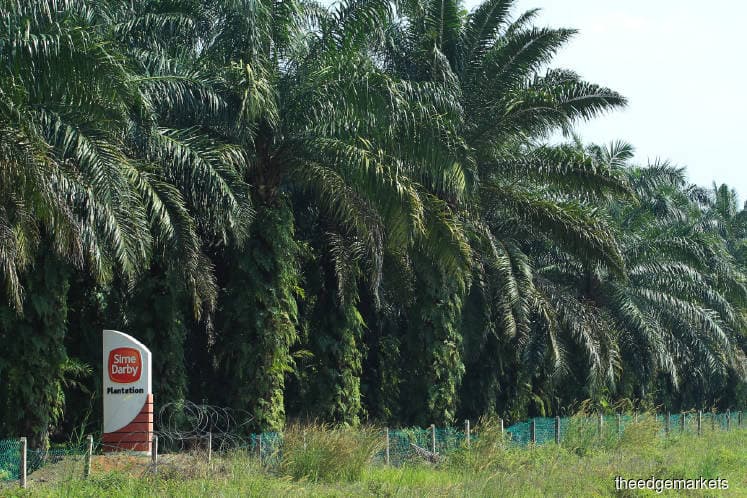
This article first appeared in The Edge Malaysia Weekly on April 15, 2019 - April 21, 2019
SIME Darby Plantation Bhd (SDP) is looking to go further down the value chain of specialty and customised products for better returns and accretive growth.
In the past, downstream was considered defensive play, where, depending on the returns, crude palm oil (CPO) producers either sold the commodity to the market or sent it to the refiners for processing. But this has changed in the past five years.
“Downstream can be a value-accretive business activity,” Mohd Haris Mohd Arshad, SDP’s chief operating officer for downstream, tells The Edge. He notes that mass commodity processing yields only a 5% return whereas a tailored or differentiated product, such as margarine or specialty oil, can provide 10% to 15%.
Haris is also the managing director of Sime Darby Oils, the rebranding of which has helped create a corporate name for SDP’s downstream business that is expected to drive the group’s growth going forward.
He says the group has a number of strategies in mind, including improving plant utilisation from 75% at present to 85% and converting some of the bulk offering to specialty refining.
Sime Darby Oils’ current refining capacity is 3.8 million tonnes, two million of which consists of bulk refining and the remaining 1.8 million tonnes, specialty refining.
“In the past few years, we have gone further into specialty refining … we need to be involved in the consumer market rather than just being an exporter of CPO. That’s the plan,” Haris says.
SDP’s downstream performance last year shows a distinct shift into high-margin specialty products. In 2015, only a third of its product mix came from differentiated products while two thirds were from bulk offering. Last year, the ratio changed to 45:55.
Haris says Sime Darby Oils is also prototyping in certain markets, where the shipment of its oil products can be done from source to consumer in small batches. “We are working with a distributor that helps us connect with the respective food manufacturers. While volume is still small, we want to test the hypothesis. The results have been quite encouraging thus far. The quality that the manufacturers get (produced here and shipped direct to them) is still preserved.”
In the past, refining needed to be done in the consuming market as shipments could only be done in bulk.
Haris believes this presents opportunities to those who can disrupt the supply chain to the consuming market. Thus, he says, it is important for Sime Darby Oils to find innovative ways to deliver its products from source to consumer.
“If we can do that, it opens up access to a new market. Instead of producing texturised fat in the consumer market, we can produce texturised fat here in Malaysia and then ship it to the consumer.”
Eyeing new partnerships
Haris acknowledges that acquisitions or partnerships can help Sime Darby Oils grow its business faster. “We are not looking at one big acquisition but a series of small acquisitions, whether by buying a company, a merger or even a joint venture.
“The point is, we are looking for partners. At the end of the day, it’s a question of scale. By going it alone, it takes us longer to understand the market and build our presence. By working with people who are in the key market we are eyeing, we can scale up our business a lot quicker. We have had several conversations with companies that are finding new uses for palm oil.”
Sime Darby Oils’ key markets include Indonesia, India, West Africa and the Middle East.
For SDP, another core strategy is close collaboration in R&D, especially in the science behind oil refining and product development. “We need to find ways to create new uses for palm oil that will give us better margins. Food manufacturing is important to us but I’m thinking about the next 5, 10, 15 years. I’m interested in ways to get better margins as opposed to competing in just the cooking oil market,” says Haris.
SDP aims to grow its profit before interest and tax in the downstream business to RM680 million by 2022 from the RM267 million achieved last year. Haris believes growth in the downstream business will be slight this year as the group is depending solely on organic growth. Its investments in new capacities will only be realised in 18 months. “By mid-2020, the capacity will be ready. So, we’re looking at rapid growth in sales by 2021. Our specialty refining is actually in full capacity now, so we can’t grow that anymore.”
To expand its capacity in Malaysia, the group has invested RM40 million in a refining plant, RM40 million in a packaging facility in North Port and RM45 million to RM50 million in a biodiesel facility. Haris believes this will drive the downstream business margin from a single digit to between 10% and 15% by 2022.
Other than the EU’s threat to boycott Malaysian palm oil and a lack of market growth, Haris says Europe is an interesting market for the plantation group.
“Europe is not a growing market. We think it is interesting because the customers we supply to today are strategic ones. They value sustainability and pay a premium to get Sime Darby oil. This strategic tie-up gives us a good enough reason to remain in Europe. We are also one of the biggest producers of sustainable palm oil in Europe through our facilities in Liverpool and the Netherlands.”
Save by subscribing to us for your print and/or digital copy.
P/S: The Edge is also available on Apple's AppStore and Androids' Google Play.